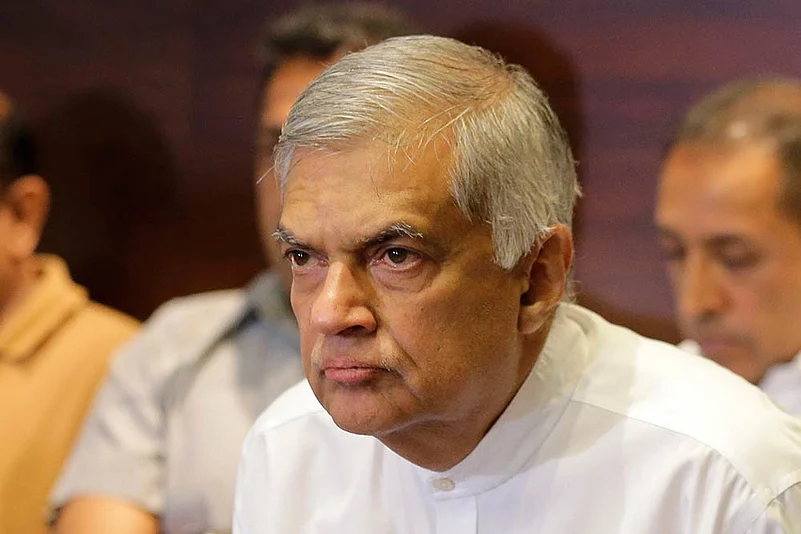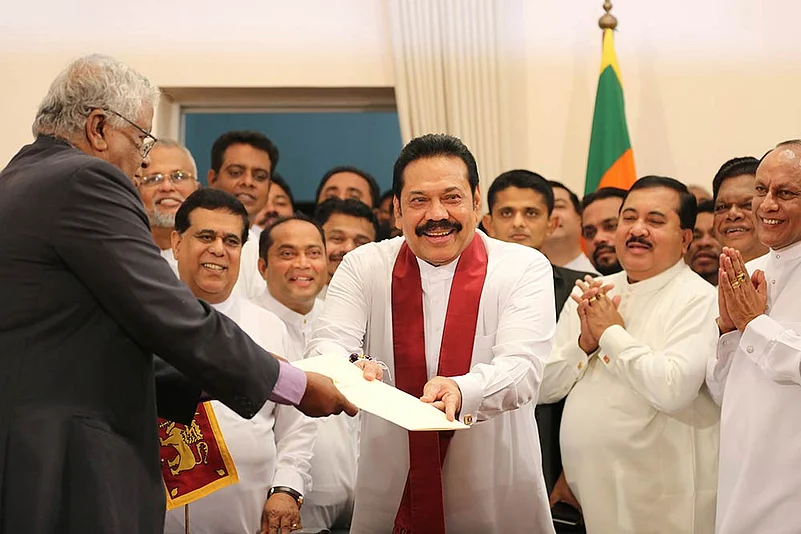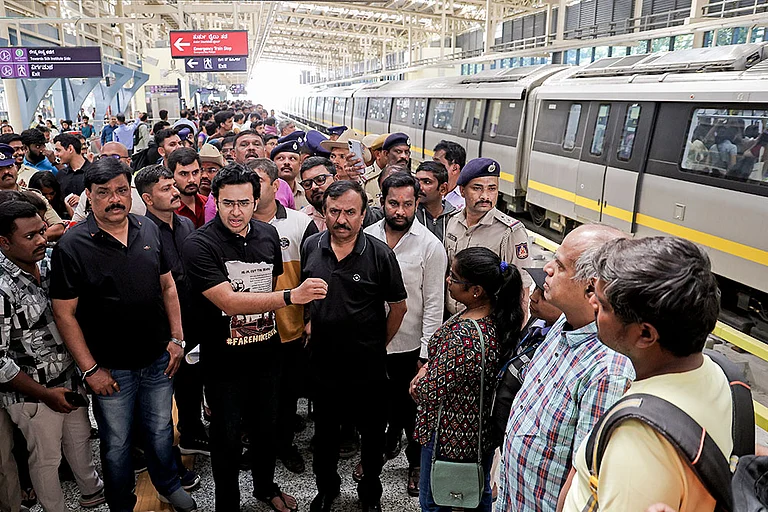The fractious and ungainly political convulsion in Sri Lanka over the past week has brought focus on its prime minister and, by extension, on the fate of his cabinet. But, in reality, the three key dramatis personae—President Maithripala Sirisena, ousted PM Ranil Wickremesinghe and newly appointed premier Mahinda Rajapaksa—are all jostling for a vantage position for the next presidential elections.
Presidential polls are due in early January 2020, but the process for selection of candidates and ensuring their support among MPs will be set in motion from next year and crystallise by end 2019.
Since 1978 Sri Lanka has an executive presidency. Several amendments to the constitution over the years have tackled presidential powers. The 19th amendment, in particular, was brought in by an overwhelming parliamentary majority in 2015, reduced the presidential term from six to five years and brought other limitations to his powers. But the Lankan president continues to wield clout on important issues pertaining to the country’s stability, security and all-round progress.
Despite increasing strains in their relations, Sirisena’s decision to sack Wickremesinghe and appoint Rajapaksa in his place surprised many. The Indian leadership, in particular, was taken aback as it hosted Wickremesinghe in New Delhi barely a week before his dismissal. South Block officials thought the failure to pass the budget, with Sirisena withdrawing support of his Sri Lanka Freedom Party MPs from the government, could have led to Wickremesinghe’s ouster.

Observers believe the uncertainty over the contender for the 2019 presidential election to be the nub of the Sirisena-Wickremesinghe rift. While Sirisena would like another term after his current one ends in 2020, Wickremesinghe, leader of the United National Party (UNP), the largest group in parliament, also wants to be the next president.
Mahinda Rajapaksa, the other colossus in Lankan politics, is barred from contesting, as the constitution prevents former occupiers of the president’s post from having another shot at it. This, however, does not preclude a member of the Rajapaksa family from stepping in.
Rajapaksa’s brothers—Gotabhaya and Basil, are both contenders. But both are US nationals and cannot contest the presidential polls unless they give up their American nationality. Sources say that the ambitious brothers may well do that to have a shot at the ambitious post. Irrespective of which of the brothers get to contest, their efforts can only be taken seriously once Rajapaksa senior endorses the candidacy.
Indications suggest Rajapaksa doesn’t favour either; his candidate of choice is his son Namal. But again, a presidential candidate has to be at least 35; Namal will reach that age in April 2021—a year after the presidential elections.
Two options lie before Rajapaksa. One is to make a deal with Sirisena by agreeing to support a second term for him while ensuring he remains PM. This will allow him to garner support for his son among a maximum number of parliamentarians. Secondly, he can be premier and wait for mid-term parliamentary elections, as he demands, to increase his support base among the MPs. If he has more than two-thirds of support in the 225-member parliament, he can even attempt to amend the constitution and revert to the Westminster-style political system from the current presidential one. But before all that, he will have to prove his majority in parliament, to survive as the new prime minister.
Wickremesinghe can also bounce back if he manages the right partners in his coalition and gears up for his candidature as the next president.
Interestingly, much of this political drama is being played out under the shadow of India-China rivalry for space and influence in the island nation. Despite Rajapaksa’s pro-Chinese leanings, in past years he had corrected course in an effort to endear himself to the Indian leadership.
India and China may continue to jockey for supremacy in Sri Lanka, but at present, they have limited influence over the ongoing turmoil.
The re-alignment among Sri Lankan parties would take definite shape in the next few weeks. However, leaders of a country whose wounds from a bloody, decade-old ethnic war have barely healed should privilege stability and prosperity over a scrabble for power.
***
- A failure to pass the budget, with Sirisena retracting support of SLFP MPs, may have undone Wickremesinghe
- Rajapaksa, the new PM, has to prove majority in parliament to survive, and then can hatch plans for the future

























